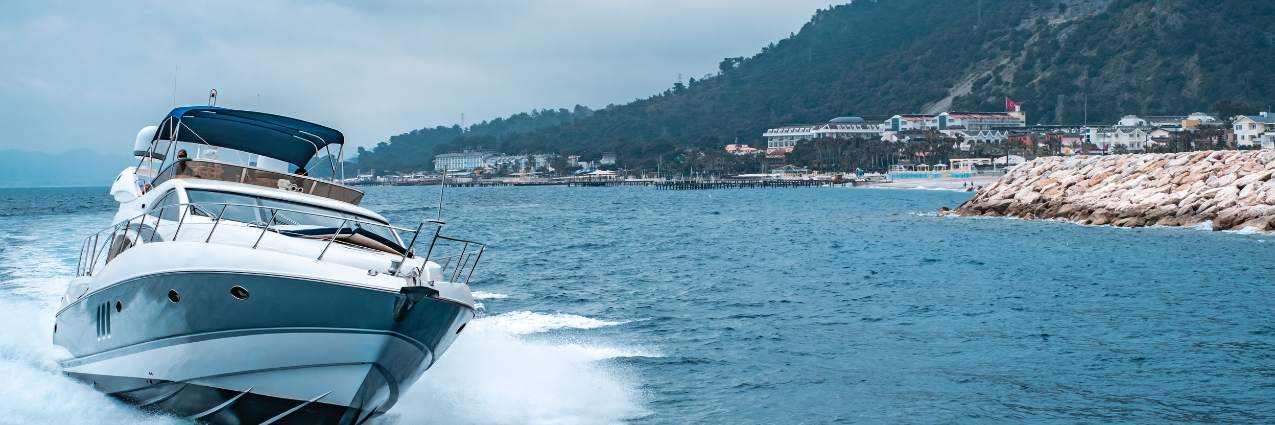The Bahamas (Northern Region)
Turks and Caicos
Amsterdam
Cyprus
Cayman Islands
Jamaica
Barbados
British Virgin Islands

August 02 2024

In 2009 the Rum N’Coke, a 41 foot yacht, was stolen from the Bimini Bay Marina in the Bahamas, taken to the Dominican Republic and never seen again. It took until June 2024 for the Privy Council to finally settle the legal battle over Bimini Bay’s responsibility for the theft. Did the theft indicate that the owners of the marina were negligent? Did they even owe a duty of care to the yacht owners?
In a clear decision the court found that the Marina did not, in the circumstances, owe such a duty.
The case was brought to the Privy Council by Great Lakes Insurance who had paid out $579,000 to the owners of the Rum N’Coke to settle their insurance claim. Great Lakes argued – unsuccessfully as it turned out – that they should be reimbursed the amount of the insurance payout. In their view the theft had only occurred because Bimini Bay was being operated in a negligent way.
This long running legal saga is not just of local interest. Lord Burrows’ detailed Privy Council judgment is regarded as a highly useful clarification of the circumstances in which a duty of care exists to prevent theft and has wide implications for the law of negligence generally. We look at the case below.
ParrisWhittaker is a team of award-winning lawyers headquartered in the Bahamas with strategically located offices across the region and overseas. We specialize in litigation and dispute resolution, working hard to find practical and cost-effective solutions to tricky legal disputes.
We’re available on 1-242-352-6110 and 1-242-352-6112 or you can always contact us online.
The case was brought to the Privy Council by the insurers of the stolen vessel, the Rum N’Coke against RAV Bahamas wo owned and operated the Bimini Bay Marina. Originally the Supreme Court of the Bahamas had come down on the side of the insurance company, deciding that there was a duty of care owed by the owner of the marina to ensure that the yacht was kept “reasonably safe, and not susceptible to theft”.
The Court of Appeal reversed thus decision and the Privy Council appeal was an attempt by the insurance company to reinstate the decision of the Bahama Supreme Court. It failed to do so.
Briefly the facts of the case were as follows:
On 12 July 2009, the Rum N’Coke was docked at the Bimini Bay Marina in the Bahamas. The cabin had been left unlocked by the vessel owner. While there was a system in place for owners to leave keys with the marina office and there was an established protocol for their release, in this case the marina was not asked to look after the keys.
On 18 July 2009, a marina employee was contacted by someone purporting to be the vessel owner, indicating that the vessel was to be collected and requesting that it be prepared for departure (this involved turning on pumps and air conditioning and other tasks). The employee then met two unknown individuals on board the vessel who, on payment of the cleaning and other charges, proceeded to sail the vessel away – effectively stealing it.
This was the first theft of a vessel since the marina opened.
In its decision The Privy Council highlighted two provisions in the lease agreement between the marina owner and the proprietors of the Rum N’Coke:
In the Privy Council’s view these provisions indicated that the marina owner had not assumed responsibility to use reasonable care to guard against the theft of the yacht. Clause 17 in particular clarified that such responsibility lay with the yacht owner.
The decision may make difficult reading for owners of property that is left on leased premises such as a marina. But the Bimini Bay was decided on a very particular set of facts. Interestingly in its judgment the Board of the Privy Council raised another Bahamas case, Western Air which we have discussed previously.
On the face of it there are similarities between the Bimini case and Western Air. But in Western Air the Airport Authority was found responsible for the theft of an aircraft located in the airport precincts.
The Privy Council however had no hesitation in differentiating the two cases:
For advice from our litigation solicitors please feel free to reach out to us at ParrisWhittaker for an initial, no-obligation discussion.
CLOSE X
